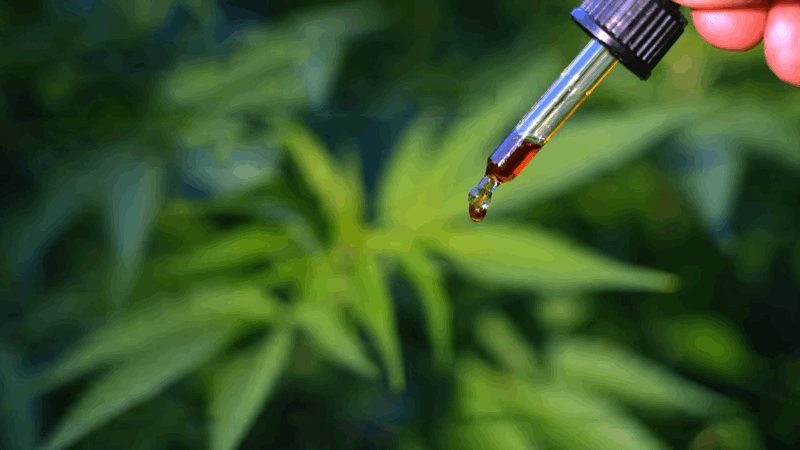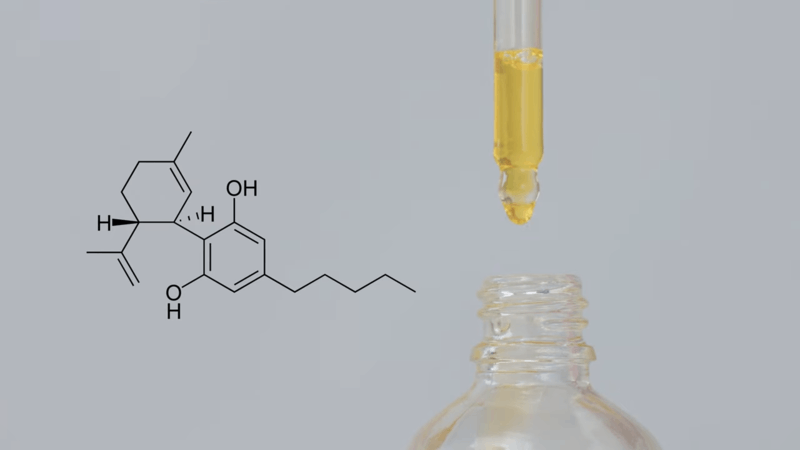No products in the cart.
Itching in dogs can be a bothersome and uncomfortable issue, impacting their overall well-being. If your furry friend is suffering from itching, finding effective solutions is crucial. One potential option to consider is CBD for puppies and dogs. CBD has gained popularity for its potential soothing properties, and many pet owners have turned to CBD to help alleviate their dogs’ itching.
The reasons for itching in dogs, frequent symptoms to watch out for, and how CBD products can help with relief are all covered in this blog. Discover how CBD may be a natural and safe solution for your dog’s itching woes.
Itching in Dogs and Valuable Information

Itching in dogs can be a frustrating issue for both pets and their owners. Despite the fact that the causes and signs of itching can differ, it’s important to treat this pain to raise your dog’s quality of life. You can take the necessary actions to stop itching in dogs by being aware of the probable triggers. Regular grooming, maintaining a healthy diet, and using veterinarian-recommended treatments can play a vital role in managing and preventing itching in dogs.
The Causes of Itching in Dogs
Itching in dogs can be caused by various factors, including
- Allergies: Certain foods, environmental allergens (such pollen or dust mites), or items they come into touch with (like particular cleaning products or fabrics) can cause allergies in dogs. Allergies can trigger itchiness, skin redness, and irritation.
- Fleas and parasites: Flea infestations are a common cause of itching in dogs. Flea bites can lead to intense itching and discomfort. Ticks, mites, and lice are among other parasites that can itch or irritate the skin.
- Skin infections: Bacterial or yeast infections can cause itching in dogs. These infections often occur when there is an underlying issue such as allergies, hot spots, or moisture accumulation in skin folds.
- Dry skin: Dogs can feel dry skin, just like humans can, especially in arid climates or in the winter. Dry skin can become itchy and flaky, leading to discomfort.
- Dermatitis: When irritants or allergens come into touch with a dog’s skin, it can result in contact dermatitis, which causes inflammation and itching. Common irritants include certain plants, chemicals, or grooming products.
- Skin conditions: Different skin disorders that can lead to chronic itching and pain in dogs include atopic dermatitis, seborrhea, and mange.
- Other factors: Stress, boredom, or anxiety can manifest in dogs as excessive scratching or itching. Additionally, certain medications, hormonal imbalances, or underlying health issues may contribute to itching.
Identifying the underlying cause of itching in dogs is crucial in order to effectively address the issue. It is advised to visit a veterinarian if your dog is scratching constantly or severely. They can perform a thorough examination, conduct tests if necessary, and provide appropriate treatment options to alleviate the itching and improve your dog’s well-being.
The Common Symptoms of Itching in Dogs
Itching in dogs can manifest through a variety of symptoms, indicating discomfort or an underlying issue:
- Excessive scratching: Dogs experiencing itching will often scratch excessively, often focusing on specific areas of their body.
- Licking and chewing: Dogs may frequently lick or chew the itchy areas, attempting to alleviate the discomfort.
- Redness and irritation: Itching can lead to redness, inflammation, and visible irritation of the skin. The affected area may appear swollen or irritated.
- Hair loss: Persistent itching can cause hair loss in the affected areas. Over time, the dog’s coat may become thin or develop bald patches.
- Hot spots: Intense scratching or chewing can create hot spots, which are areas of moist, inflamed skin that may be painful and prone to infection.
- Skin lesions: Itching can cause the formation of sores, scabs, or crusts on the skin. These lesions may bleed or ooze fluid.
- Behavioral changes: Dogs may exhibit behavioral changes such as restlessness, agitation, or difficulty sleeping due to the constant itchiness.
- Skin odor: In some cases, itching can lead to an unpleasant odor arising from the skin due to secondary infections or excessive moisture.
It’s significant to note that depending on the underlying cause of the itching, these symptoms can change. It is advised to visit a veterinarian for an accurate diagnosis and adequate treatment if your dog exhibits chronic or severe itching. Identifying and addressing the root cause of itching is crucial to relieve discomfort and promote your dog’s overall well-being.
Natural Remedies for Itching in Dogs

There are several natural remedies that can help alleviate itching in dogs. Here are some natural remedies that might help
- Oatmeal baths: A soothing oatmeal bath can help calm itchy skin. Use colloidal oatmeal specifically formulated for dogs and follow the instructions provided. Oatmeal helps moisturize the skin and reduce inflammation in dogs.
- Apple cider vinegar: Diluted apple cider vinegar can be used as a topical solution to soothe itchy skin. A gentle cloth should be used to apply a mixture of apple cider vinegar and water in equal parts to the afflicted regions. Avoid applying it to open wounds or raw skin.
- Coconut oil: Itchy skin can be moisturized and relieved by topically using organic, cold-pressed coconut oil. It has anti-inflammatory as well as antibacterial effects. Ensure your dog doesn’t lick off excessive amounts of coconut oil, as it can cause digestive issues.
- Chamomile tea: Brew a weak chamomile tea, let it cool, and use it as a rinse on your dog’s itchy skin. Chamomile has calming properties that can help relieve itchiness and reduce inflammation. Ensure it’s cooled before applying, and avoid contact with the eyes.
- Aloe vera: Pure, natural aloe vera gel can be applied topically to soothe itchy skin. Ensure it’s free from added ingredients such as alcohol or fragrances, as these can further irritate the skin. Aloe vera has anti-inflammatory and cooling properties.
- Epsom salt soaks: Epsom salt baths or soaks can help relieve itching and reduce inflammation. Dissolve Epsom salt in warm water and soak your dog’s affected areas for 10-15 minutes. Ensure the water is not too hot, and pat dry gently afterward.
- Dietary modifications: In some cases, dietary changes may help manage itching caused by food allergies or sensitivities. Consult with a veterinarian to discuss potential dietary modifications or elimination diets to identify and eliminate trigger ingredients.
Remember, natural remedies may not be suitable for every dog or every underlying cause of itching. To ensure the safety and well-being of furry friends, pet owners should see an animal healthcare professional.
How to Stop Dog Itching with CBD?

CBD has been shown to have potential anti-inflammatory and soothing properties, which can help alleviate itching in dogs. Here’s how you can use CBD to help stop dog itching:
- Choose high-quality CBD products: Select CBD products specifically formulated for pets. Look for reputable brands that provide third-party lab testing to ensure the purity and potency of their products. Choose CBD products made from hemp plants with little to no THC.
- Consult with a veterinarian: Please consult with a veterinarian who is familiar with CBD use in pets, before using CBD for itching in dogs. They can assess your dog’s condition, provide guidance on appropriate dosage and administration, and monitor for any potential interactions with medications or underlying health issues.
- Determine the proper dosage: CBD dosage for dogs depends on factors such as their size, weight, and individual needs. Start with a low dosage and gradually increase it as needed while closely monitoring your dog’s response.
- Administer CBD oil or capsules: CBD can be given to dogs in the form of oil or capsules. CBD oil can be administered directly into the dog’s mouth using a dropper or mixed with their food. CBD capsules can be given orally, either as a whole capsule or by opening it and mixing the contents with their food.
- Monitor for effectiveness: Pay attention to how your dog responds to CBD. If the itching improves, it’s an indication that the CBD is helping. It’s crucial to reevaluate the dosage or look into alternative treatments if there is no change or if the itching gets worse.
- Consider full-spectrum CBD: Trace levels of THC and other helpful components are also included in full-spectrum CBD products along with a variety of other cannabinoids. Please ensure that the THC content is within the legal limits and safe for your dog.
It’s always best to seek professional guidance from a veterinarian who can provide personalized advice based on your dog’s specific needs and health condition, because CBD may not work for every dog or every underlying cause of itching.
How Much CBD Oil Should I Give my Dog for Itching?
Size, weight, and the level of itching are all important considerations when figuring out how much CBD oil to give your dog to relieve their itching. It’s crucial to consult with a veterinarian experienced in CBD use for pets to determine the optimal dosage for your furry friends. They can take into account your dog’s specific condition and provide personalized guidance to ensure the dosage is safe and effective.
Starting with a low dosage and gradually increasing it while closely monitoring your dog’s response is generally recommended to find the right amount that provides relief from itching in dogs without any adverse effects.
How Long does It Take CBD to Work for Itching in Dogs?
Several variables, such as the level of itching and how each dog responds to CBD, can affect how long it takes for CBD to start working for itching in dogs. Some dogs may experience relief within a relatively short period, such as within 30 minutes to an hour after administration. However, for others, it may take several days or even weeks of consistent CBD use to see noticeable improvements in itching.
It’s important to give CBD enough time to build up in the dog’s system and interact with their endocannabinoid system to potentially reduce inflammation and soothe itching. Monitoring your dog’s response and consulting with a veterinarian can help assess the effectiveness of CBD and make any necessary adjustments to the dosage or treatment plan.
When Should You Apply CBD Oil on Your Dog’s Skin?

Here are some instances when you may consider applying CBD oil on your dog’s skin
- Itchy or irritated skin: If your dog has localized areas of itching or skin irritation, you can apply CBD oil directly to those areas. Gently massage a small amount of CBD oil onto the affected skin, ensuring it is thoroughly absorbed.
- Hot spots: Hot spots are inflamed, irritated areas on the skin that can be caused by itching or self-trauma. Applying CBD oil to hot spots may help soothe the inflammation and promote healing. Ensure the area is clean and dry before applying the CBD oil.
- Dry or flaky skin: CBD oil can aid in nourishing and moisturizing dry, flaky skin. Apply a little amount of CBD oil by massaging it into your dog’s skin, paying special attention to any dry patches like the elbows, paws, or nose.
- Minor skin abrasions: If your dog has minor cuts, scratches, or abrasions, CBD oil may help promote healing and reduce inflammation.
It’s crucial to remember that unless CBD oil is specially prepared for external usage, it should only be used topically and not consumed. To ensure it is appropriate for their specific condition and to determine the best application method and dosage, it’s advisable to consult with a veterinarian before applying CBD oil on your dog’s skin.
Conclusion
Itching in dogs can be a bothersome issue that affects their comfort and overall well-being. Remember to consult with a veterinarian for proper diagnosis and guidance on the best approach to manage itching in dogs. By addressing itching promptly and effectively, you can improve your dog’s quality of life and ensure they are itch-free and happy companions.
Hello, I am Hazel Bennett, an experienced copywriter specializing in the fascinating topic of CBD for dogs. With a passion for pet wellness and extensive knowledge of CBD’s potential benefits, I am here to provide you with informative and engaging content.



